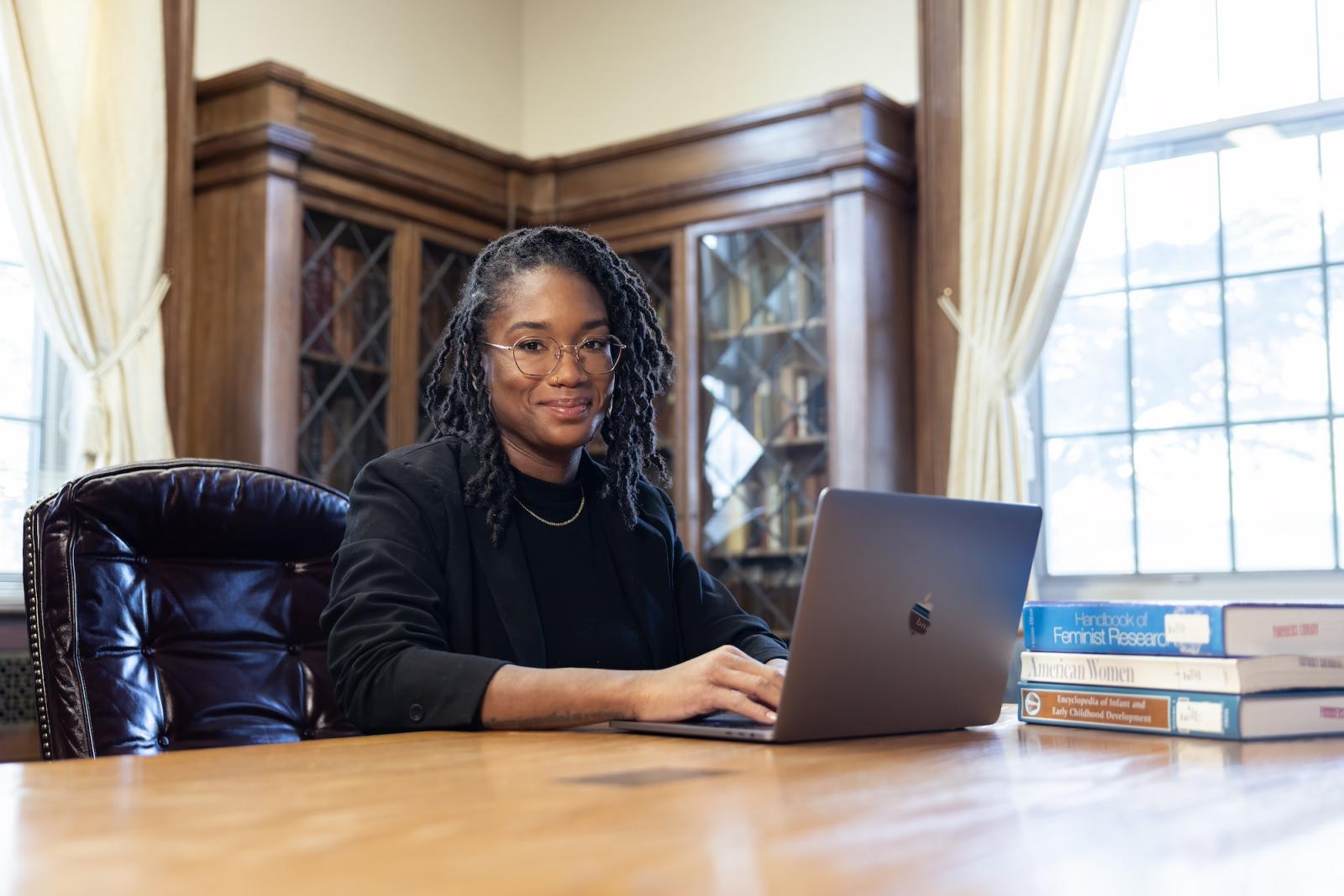Having spent over a decade in the American educational system as a teacher and administrator across the country, W. Bianca Larkin-Bonds understood the importance of Black women narrating their own experiences. However, the fourth-year clinical psychology doctoral student found that much of the available literature on Black women was told from the perspectives of white researchers.
Last year, Larkin-Bonds began a trailblazing doctoral study on the experiences of Black women and girls in school. Conducted in collaboration with fellow doctoral student Karis Thomas, the study focuses on the psychological implications of the experiences of Black girls and women in their kindergarten through 12th grade (K-12) education.
To explore this topic, Larkin-Bonds and Thomas conducted three focus groups with Howard University students. Their semi-structured interview inquired about experiences related to adultification, invisibility, hypervisibility, and misogynoir. For her dissertation, titled “Black Girls’ Stories Matter, Reading Between the Lines: A Linguistic Inquiry Word Count Analysis of Black American College Women’s K-12 Educational Experiences as a Predictor of Current Mental Health,” Larkin-Bonds is building on the project’s initial findings to explore the psychological effects of these phenomena on Black women. Using Linguistic Inquiry and Word Count (LIWC) analysis, she is examining transcripts from the focus groups to ascertain any evidence of underlying anxiety and depression.
If Black girls are experiencing instances of adultification, they may have disciplinary outcomes that result in them being more likely to be suspended or removed some class because maybe she’s 13 but perceived as being 16 and should have more self-regulation or maturity when that, in actuality, this is not the case.”
LIWC is a text analysis program that calculates the percentage of words that fall into one or more of over 80 linguistic, psychological, and topical categories indicating various social, cognitive, and affective processes. The program was developed from the discovery that language can provide rich insights into a person’s psychological state.
“I can't necessarily change that a student is navigating systemic disenfranchisement, such as, experiencing hunger or poverty, but I can help them be formative in their ability to manage their challenges, see their self-worth and empower them to change their situation,” Larkin-Bonds says.
Thus far, the findings indicate that the most pervasive theme impacting Black women and girls in K-12 is related to internalized messages and perceptions. Historical stereotypes such as the Jezebel, Sapphire, and Mammy tropes often inform interactions among teachers, administrators, and Black female students. These stereotypes elevate ideas that Black girls are inherently more disrespectful, more sexual, more aggressive, or less capable than their peers. One-third of responses from focus groups participants indicated such experiences.
“For example, if Black girls are experiencing instances of adultification, they may have disciplinary outcomes that result in them being more likely to be suspended or removed some class because maybe she’s 13 but perceived as being 16 and should have more self-regulation or maturity when that, in actuality, this is not the case,” Larkin-Bonds says.
Hearing the experiences of other Black women created not only a sense of unity for Larkin-Bonds, but also a charge to help. The experiences of Black women tend to be cyclical, and the way people perceive a younger girl impacts the way they interact with Black women as they get older, a phenomena Larkin-Bonds believes is unique to the Black experience. Allowing people to narrate their experiences and employing LIWC for analysis, especially in traumatic situations, helps mental health professionals develop more comprehensive assessment batteries to objectively identify the underlying symptoms.
As a Black educator and a member of the small population of Black clinicians, Larkin-Bonds emphasizes the responsibility and importance of pursuing research into understudied topics and asking questions that need answers. “Because of our history in this country, our experiences in schools are worth studying because they have implications for our educational outcomes,” she says.
Article ID: 1881




